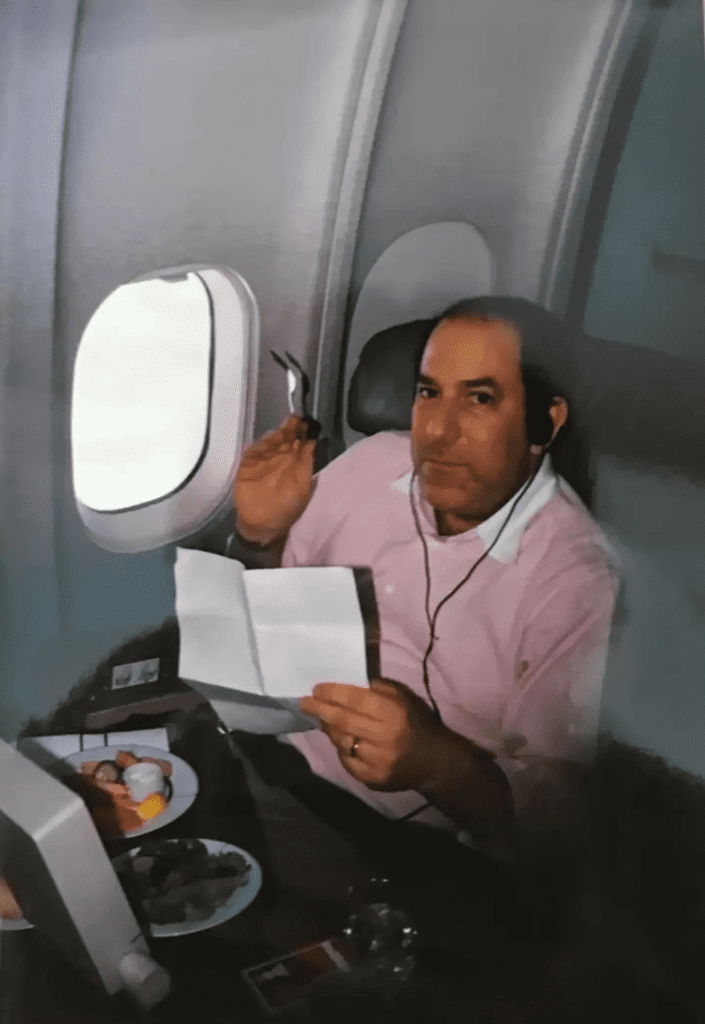Imagine having a lifetime pass to travel first class anywhere in the world—sounds like a dream, right? But what if that dream came crashing down? That’s exactly what happened to an American Airlines passenger whose lifetime first-class ticket was revoked after costing the airline millions. It’s a story that mixes privilege with consequences and raises a question: How far can one push the limits of an “unlimited” offer?
The Birth of the AAirpass: An Unusual Marketing Strategy

In 1981, American Airlines came up with a bold idea to boost revenue: the AAirpass, a $250,000 lifetime first-class ticket. The concept was simple—passengers could purchase the AAirpass and enjoy unlimited first-class flights for life.
At first, the plan seemed successful, and American Airlines managed to sell 66 of these exclusive tickets. By 1993, the cost of the AAirpass had increased to $1.1 million, reflecting both the rising costs of air travel and the premium nature of the offer. However, what started as an ingenious marketing ploy quickly spiraled into a financial disaster.
Meet Steven Rothstein: The Man Behind $21 Million in Free Flights
In 1987, Steven Rothstein, a 37-year-old stockbroker, bought an AAirpass and a $150,000 companion pass, which allowed him to take a guest on any flight. Rothstein took full advantage of the offer, clocking an estimated 10,000 flights and 30 million miles over the next 21 years—all for free. For Rothstein, the AAirpass was more than just a ticket; it was a lifestyle. He would use it for both business and pleasure, traveling extensively and enjoying first-class perks every step of the way.
But how could one man’s travels be so damaging to an airline giant? It’s simple: Rothstein’s frequent flights cost American Airlines an estimated $21 million, making his purchase price of $250,000 look like a drop in the bucket.
AAirpass: From Ingenious to Infamous
The AAirpass seemed like a stroke of brilliance when it first launched. But the plan quickly became unsustainable, largely due to passengers like Rothstein who used the pass far beyond what the airline had anticipated. American Airlines found itself losing revenue, and the once-promising idea soon became a colossal financial burden.
By 2008, the airline’s “revenue integrity team” stepped in to assess the true cost of the AAirpass. The team found that Rothstein’s flights were costing the airline millions, leading them to take drastic measures: they canceled Rothstein’s AAirpass and accused him of fraud.
The Controversy: Was Rothstein Truly at Fault?
American Airlines alleged that Rothstein had manipulated the AAirpass agreement in several ways. They claimed he booked flights with no intention of boarding, used the companion pass to allow others to travel without him, and even lent the pass to friends and strangers. In fact, Rothstein himself admitted to booking flights for others, saying, “I gave a man in Seattle a ticket to go to his father’s funeral. I gave many people tickets to visit ill family members.”
While these actions were against the rules, Rothstein believed he was merely doing good deeds. “I don’t view that as philanthropy, I view that as good deeds,” he told Forbes in 2019. His daughter Caroline defended him, stating that her father had never intended to defraud the airline but had simply used the ticket as he understood the rules allowed.

Rothstein’s Side of the Story: A Case of Misunderstanding?
Rothstein acknowledged that he often booked flights without being sure if he or his companion would make the journey. He claimed that this was a common practice among AAirpass holders and that he was unaware it violated any rules. Furthermore, he mentioned that he never booked his own reservations online, relying instead on American Airlines employees, which made him believe everything was above board.
Despite the allegations, Rothstein and American Airlines eventually settled the matter outside of court. However, Rothstein’s AAirpass was permanently revoked, leaving him stranded in places like Bosnia and other international destinations when he could no longer fly freely. The story raised questions about fairness and whether the airline had clearly defined its rules for the AAirpass holders.
Lessons Learned: When a Good Deal Goes Bad
Steven Rothstein ! pic.twitter.com/F8Aa06PJmS
— Johnny Midnight ⚡️ (@its_The_Dr) October 13, 2024
American Airlines’ experience with the AAirpass highlights the potential pitfalls of offering “unlimited” deals without clear boundaries. The airline initially thought it was selling a high-ticket item that only a few wealthy individuals would buy. However, customers like Rothstein saw it as a lifetime opportunity to maximize their investment, resulting in massive financial losses for the company.
While Rothstein’s story is unique, it serves as a reminder of a broader principle: no deal is truly unlimited. Companies must create offers that are not only attractive but also sustainable. In Rothstein’s case, the absence of clear terms led to misunderstandings that ended up costing both parties—one losing millions and the other losing a lifetime of flying privileges.
Conclusion: A Costly Adventure in the Skies

The saga of Steven Rothstein and American Airlines’ AAirpass is a tale of privilege, ambition, and ultimately, consequence. It’s a story that proves even seemingly unbeatable deals can be flawed, and that pushing the limits of any agreement—however generous—can backfire.
Rothstein’s experience may be one of the most extreme examples of how a marketing strategy can backfire, but it also serves as a cautionary tale for anyone chasing a “deal of a lifetime.” For American Airlines, it’s a lesson learned the hard way: sometimes, the cost of loyalty can be higher than expected.


